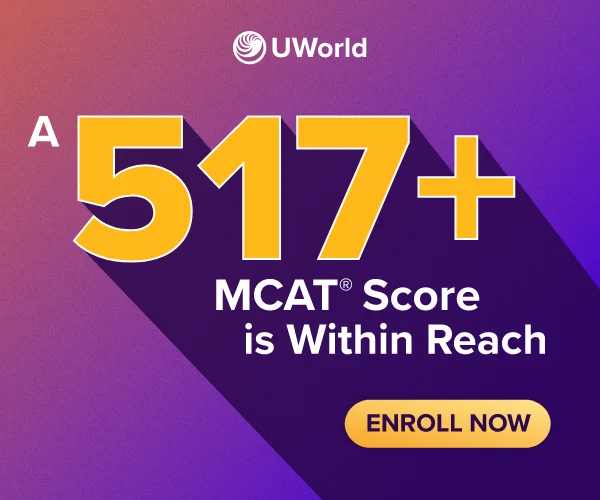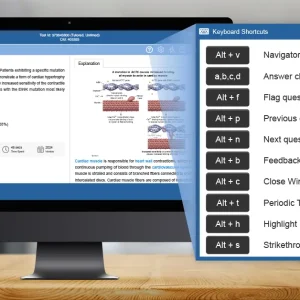As a former dean of admissions and founder of GradMissions, Autumn Lockett shares how AI can help you stay organized and spark ideas, but never replace your story.
Navigating the medical school application process is like preparing a fancy meal for a group of picky eaters. You need all the right ingredients and a bit of creativity to suit your guests’ palates and dietary requirements. In this culinary analogy, AI can certainly help with the logistics. It can find recipes, create grocery lists, and even program your sous vide to poach vegetables to exact texture specifications. AI can set a timer and tare your kitchen scale. But it can’t know when a pinch of flaky sea salt will make the whole plate sing, ensuring your diners call you a master chef.
Think about the difference between a boxed chocolate chip cookie and one that’s warm and soft in the center, fresh out of the oven. That’s the difference between a ChatGPT-written application essay and one you wrote yourself. Even if your hard-earned draft has a little imperfect grammar or a less polished voice, the human touch of your own words will resonate more with your readers. Admissions committees can taste the difference.
I’m not here to sharpen pitchforks and light torches against AI. It’s a fantastic tool, and I use it daily. It helped us find the right antiseizure meds for my son with complex epilepsy, just by reading his genomic profile! AI is better than any human when it comes to organizing your timeline (sorry, Mom!) and keeping your secondaries on track. However, when it comes to the personal elements of your application, AI cannot substitute the authenticity you should bring to the table.
Imagine you’re writing about your connection to a rural area that asks about the populations you hope to serve as a physician someday. Here’s how an AI might approach the topic:
AI-Generated Response:
“I am from a small town in Utah. The state has many rural areas, and there is a shortage of doctors in the region. Earning an MD is not about prestige — I want to practice medicine in Utah to give back to my community. I have family, friends, and a support system here. I have spent a lot of time outdoors. I enjoy hiking, skiing, and experiencing the beauty of the state. This area needs more doctors, especially in rural places, and I want to be part of that solution.”
It’s functional, almost custodial. It reads like the script of a 5 o’clock evening newscaster reporting on the life of a medical school hopeful. It’s direct and to the point, which is great for charting, but garbage for application essays. Save AI drafting for EMR work! (An aside: I recently consented to our pediatric neurologist having an AI assistant join our appointment as we went through a battery of symptoms and medication dosages. This is an excellent use case for AI. I felt more secure as a nervous mom because I knew our doctor wouldn’t miss a thing.)
But in the kind of writing medical school applications demand, the paragraph above is really missing the heart of the experience. Picture a frozen TV dinner instead of Grandma’s Sunday afternoon fried chicken.
Here’s a more personal, human-driven response:
Human-Driven Response:
“Utah raised me in the shadow of the Wasatch Mountains. The air feels thin, and the sky is limitless. There’s also a rhythm to life here that isn’t always visible. I feel it in the quiet of my early morning hikes and when the sun sets behind the Rocky peaks, casting everything in gold.
I grew up in a town where my neighbors knew my name. A trip to the grocery store could feel, for better or worse, like a mini family reunion. It’s a place where life is simple, but it’s also tough. People in rural towns like mine drive hundreds of miles to get care because there aren’t enough doctors. Families make the trip hoping to see someone who knows their history and understands the context of their lives.
I want to practice medicine in rural Utah because it’s home. My goal is to help people who’ve been left behind. I’ll be the kind of physician who goes beyond serving as a clinician, seeing patients as part of a larger story. I understand their unique challenges because I’ve experienced them too. Utah is in my blood. I want to train in the place where I’ll stay and serve the community that raised me.”
This version transcends a basic description of the place, which could have satisfied the question just fine. Instead, it invites you to curl up and watch the snow fall. You can feel the connection to the person and their mission of practicing medicine in a rural community. See the difference between a functional paragraph and one that resonates emotionally? Gooey, chocolate middle. Which essay author would you be more willing to give up a Saturday morning to interview?
When Can AI Actually Help?
- Planning and Organizing: AI can help you stay on top of your tasks. It’s scary good at keeping track of deadlines and organizing secondary essay prompts. It can help you optimize a timeline for submitting materials. Logistical support is invaluable when there are so many moving parts. Share American Medical College Application Service (AMCASⓇ) timelines with your favorite AI partner, layer in your school/work calendars and personal goals, and then watch the magic unfurl.
- Brainstorming and Cross-Referencing: AI can help you organize your experiences across the Association of American Medical Colleges’ (AAMC) core competencies. It can give you a fresh perspective on the strengths you’re too close to admire. It can bring ideas to the surface that you might have missed or forgotten. Think of it as prepping your ingredients, but you still need to decide how to season them. It makes a list; you write the descriptions.
- Managing Tasks and Deadlines: Keeping track of the timeline for your application process can feel like juggling hot pans and oven timers, and sometimes the smoke alarm is sounding, too. AI can help you create a checklist of what’s due and when, so you don’t get overwhelmed. This lets you focus on crafting personal essays that sound like you — maybe even leaving you time for tailgates and lake trips. It’s okay to carve out time for fun during your application cycle!
- Studying and Test Prep: AI can help you break down study materials and even quiz you on concepts to keep you on track. It’s like a study partner who never gets tired and always knows what’s next. But when it comes to trusted, vetted answers, especially for something as crucial as MCAT prep, AI can’t provide the depth or reliability you get from expert-reviewed resources like UWorld. Stick with what’s been tried and tested to ensure your prep is solid.
When Not to Use AI
AI doesn’t know your full story. It will not capture the nuances of your life; those are the moments that define you. It can handle logistics and organization, but it can’t replace the personal touch that makes your application uniquely you. Admissions committees snooze through essays that feel like they came from an algorithm. Interviewers will barely skim your application if you don’t grab their attention. Then, they’ll have no choice but to grill you to find out your real story. The better you tell your story in application essays, the more successful you’ll be in your interview.
Use AI to keep your application kitchen running smoothly. Let it help with the prep and the organization. But when it’s time to cook your essays, roll up your sleeves and get your hands dirty. The same grit that carried you through the toughest science courses and early-morning EMT calls will also serve you here. Don’t leave the recounting of your hard work to a bot. Your voice gets you to the interview table, earns you the top rank score, and ultimately lands you in the white coat. You don’t have to be polished to perfection. Just be the real, human you.
Autumn Lockett is the founder and CEO of GradMissions, the leading admissions consultancy for top-tier medical, law, and graduate programs. She can be reached at [email protected].





